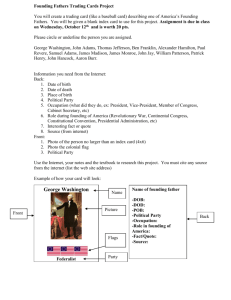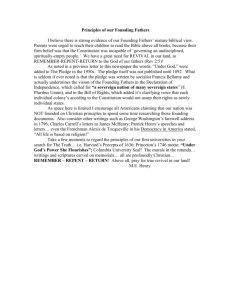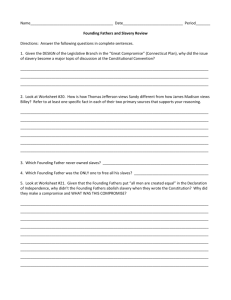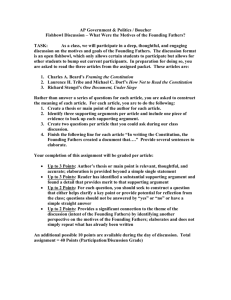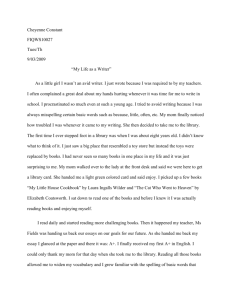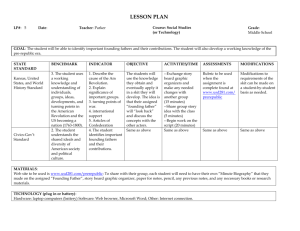Lesson 14: Colonial History—A New Country - NC-NET
advertisement
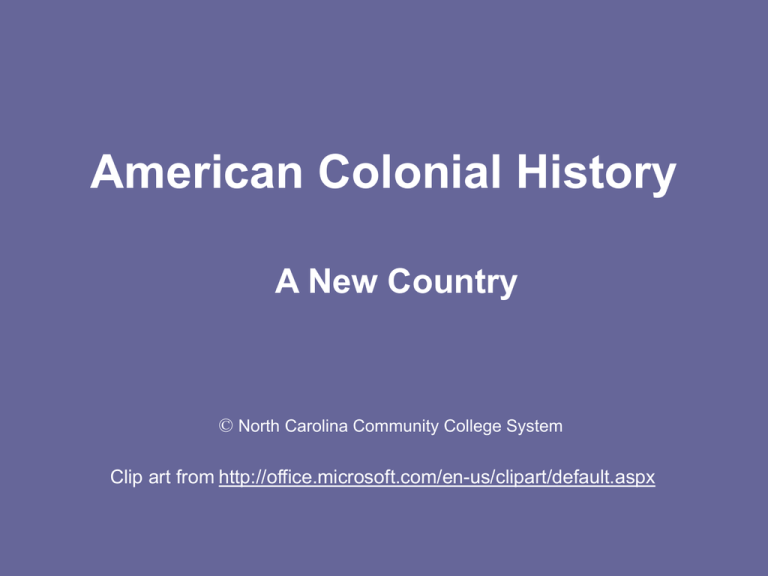
American Colonial History A New Country © North Carolina Community College System Clip art from http://office.microsoft.com/en-us/clipart/default.aspx We know King George III of England angered the colonists. • He required the colonists to keep British soldiers in their homes for free. • He required the colonists to pay high taxes. • He did not let the colonists have self-government. So the colonists declared their independence. The men who led the country to independence are called Founding Fathers. Thomas Jefferson is a Founding Father. He wrote the Declaration of Independence. The colonies adopted it on July 4, 1776. George Washington is a Founding Father. • Washington led the American army fighting the British. • Washington was also the first President of the United States. • He is called the “Father of Our Country.” As free people, Americans had to set up a government. The Founding Fathers wrote the U.S. Constitution in 1787 at the Constitutional Convention. To encourage people to vote for (ratify) the Constitution, New York newspapers printed a series of 85 essays. We call these essays the Federalist Papers. Nobody knew who was writing the Federalist Papers. The essays had the signature “Publius.” http://www.foundingfathers.info/ (“Publius” is a senator in Shakepeare’s play “Julius Caesar.”) Today we know that “Publius” was three Founding Fathers: • John Jay (President of the Continental Congress and first Chief Justice of the United States, Jay wrote 5 of the essays.) • Alexander Hamilton (First United States Secretary of the Treasury, Hamilton wrote 52 of the essays.) • James Madison (Fourth President of the United States, Madison wrote 28 of the essays.) Benjamin Franklin is one of the most amazing Founding Fathers. • Franklin was the oldest member of the Constitutional Convention. • He was the first Postmaster General of the United States. • He was the first American Diplomat. He went to France. He got France to support America in her fight for independence from Britain. • He wrote “Poor Richard’s Almanac.” His almanac had a calendar, weather predictions, Franklin’s own wise sayings, and astrological signs. Early to bed and early to rise, makes a man healthy, wealthy, and wise. -Benjamin Franklin • He started the first free libraries. The Founding Fathers established the important principles of American democracy in • the Declaration of Independence, 1.------------------• the Constitution, and 2.-----------------3.-----------------• the Bill of Rights. 4.-----------------5.-----------------6.------------------ In the next lesson, we will see how the United States faced new problems in the 1800s.
